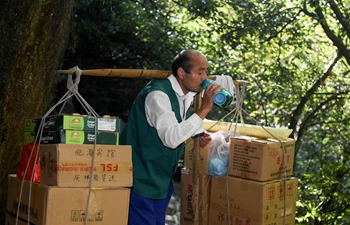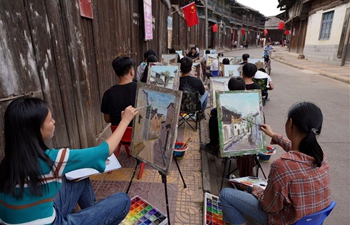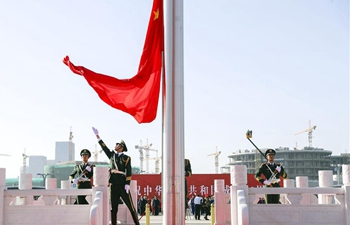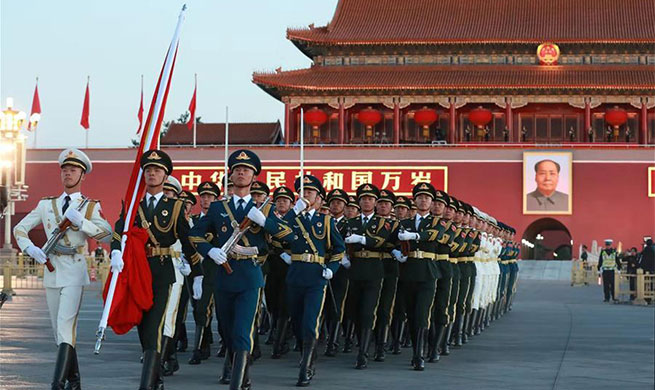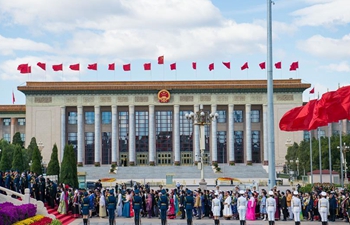SEOUL, Oct. 2 (Xinhua) -- South Korea's industrial output rose for two months through August despite the slumping corporate investment and private consumption, a government report showed Tuesday.
Production in all industries grew 0.5 percent in August from a month earlier, after increasing 0.6 percent in the prior month, according to Statistics Korea.
Output in the mining and manufacturing sectors expanded 1.4 percent on brisk activity in the automobile industry that offset a reduction in the semiconductor sector.
Auto production jumped 21.8 percent, marking the highest growth in five years. Demand for locally-made vehicles was solid in the North America and Middle East regions, while a temporary cut in consumption tax bolstered auto demand in the domestic market.
Chip production declined 6.2 percent in August from a month earlier as chipmakers reduced inventory. From a year ago, the chip output expanded 13.6 percent.
The industrial output growth was mainly boosted by the robust export, which accounts for about half of the export-driven economy. The export topped 50 billion U.S. dollars for five months to September.
Manufacturers recorded an average capacity ratio of 75.7 percent in August, up 2.5 percentage points from a month earlier. Inventory among manufacturers gained 1.1 percent in the month.
Services industry production inched up 0.1 percent in August from the previous month due to demand for durable goods.
However, corporate investment and private consumption made a warning sound. Retail sales, which reflect consumer spending, little changed in August after growing for two months to July.
Facility investment shrank 1.4 percent in August from a month ago, keeping a downward trend for six months since March. It was the longest reduction in about 20 years.
Consumers refrained from opening their purses amid the worsening of labor market conditions. The employment growth was 3,000 in August as those in their 40s lost their jobs.
Amid the soft domestic demand, companies were reluctant to spend capital on new facilities, leading to the lower employment and the weaker private consumption.
The government earmarked extra budget to help the younger generation get a decent job, but it had yet to take effect. It also raised minimum wage to help consumers spend more.
The cyclical factor for coincident indicators, which gauge current economic conditions, fell 0.2 points over the month to 98.9 in August, the lowest since August 2009 when the global financial crisis rattled the global economy.
The reading for leading indicators, which reflect future economic situations, dipped 0.4 points to 99.4, posting the biggest fall in two and a half years.
The construction completed was down 1.3 percent in August from a month ago as the government unveiled a set of measures to control speculative investment in the real estate market.

